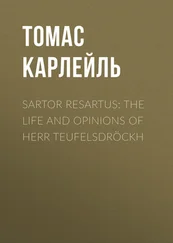Томас Карлейль - The Life of Friedrich Schiller
Здесь есть возможность читать онлайн «Томас Карлейль - The Life of Friedrich Schiller» — ознакомительный отрывок электронной книги совершенно бесплатно, а после прочтения отрывка купить полную версию. В некоторых случаях можно слушать аудио, скачать через торрент в формате fb2 и присутствует краткое содержание. Жанр: Биографии и Мемуары, Философия, foreign_edu, foreign_antique, на английском языке. Описание произведения, (предисловие) а так же отзывы посетителей доступны на портале библиотеки ЛибКат.
- Название:The Life of Friedrich Schiller
- Автор:
- Жанр:
- Год:неизвестен
- ISBN:нет данных
- Рейтинг книги:3 / 5. Голосов: 1
-
Избранное:Добавить в избранное
- Отзывы:
-
Ваша оценка:
- 60
- 1
- 2
- 3
- 4
- 5
The Life of Friedrich Schiller: краткое содержание, описание и аннотация
Предлагаем к чтению аннотацию, описание, краткое содержание или предисловие (зависит от того, что написал сам автор книги «The Life of Friedrich Schiller»). Если вы не нашли необходимую информацию о книге — напишите в комментариях, мы постараемся отыскать её.
The Life of Friedrich Schiller — читать онлайн ознакомительный отрывок
Ниже представлен текст книги, разбитый по страницам. Система сохранения места последней прочитанной страницы, позволяет с удобством читать онлайн бесплатно книгу «The Life of Friedrich Schiller», без необходимости каждый раз заново искать на чём Вы остановились. Поставьте закладку, и сможете в любой момент перейти на страницу, на которой закончили чтение.
Интервал:
Закладка:
Thomas Carlyle
The Life of Friedrich Schiller / Comprehending an Examination of His Works
PREFACE TO SECOND EDITION.
[1845.]
The excuse for reprinting this somewhat insignificant Book is, that certain parties, of the pirate species, were preparing to reprint it for me. There are books, as there are horses, which a judicious owner, on fair survey of them, might prefer to adjust by at once shooting through the head: but in the case of books, owing to the pirate species, that is not possible. Remains therefore that at least dirty paper and errors of the press be guarded against; that a poor Book, which has still to walk this world, do walk in clean linen, so to speak, and pass its few and evil days with no blotches but its own adhering to it.
There have been various new Lives of Schiller since this one first saw the light;—great changes in our notions, informations, in our relations to the Life of Schiller, and to other things connected therewith, during that long time! Into which I could not in the least enter on the present occasion. Such errors, one or two, as lay corrigible on the surface, I have pointed out by here and there a Note as I read; but of errors that lay deeper there could no charge be taken: to break the surface, to tear-up the old substance, and model it anew, was a task that lay far from me,—that would have been frightful to me. What was written remains written; and the Reader, by way of constant commentary, when needed, has to say to himself, "It was written Twenty years ago." For newer instruction on Schiller's Biography he can consult the Schillers Leben of Madame von Wolzogen, which Goethe once called a Schiller Redivivus ; the Briefwechsel zwischen Schiller und Goethe ;—or, as a summary of the whole, and the readiest inlet to the general subject for an English reader, Sir Edward Bulwer's Sketch of Schiller's Life , a vigorous and lively piece of writing, prefixed to his Translations from Schiller .
The present little Book is very imperfect:—but it pretends also to be very harmless; it can innocently instruct those who are more ignorant than itself! To which ingenuous class, according to their wants and tastes, let it, with all good wishes, and hopes to meet afterwards in fruitfuler provinces, be heartily commended.
T. Carlyle.London, 7th May 1845.
PART I.
SCHILLER'S YOUTH (1759-1784)
PART FIRST.
[1759-1784.]
Among the writers of the concluding part of the last century there is none more deserving of our notice than Friedrich Schiller. Distinguished alike for the splendour of his intellectual faculties, and the elevation of his tastes and feelings, he has left behind him in his works a noble emblem of these great qualities: and the reputation which he thus enjoys, and has merited, excites our attention the more, on considering the circumstances under which it was acquired. Schiller had peculiar difficulties to strive with, and his success has likewise been peculiar. Much of his life was deformed by inquietude and disease, and it terminated at middle age; he composed in a language then scarcely settled into form, or admitted to a rank among the cultivated languages of Europe: yet his writings are remarkable for their extent and variety as well as their intrinsic excellence; and his own countrymen are not his only, or perhaps his principal admirers. It is difficult to collect or interpret the general voice; but the World, no less than Germany, seems already to have dignified him with the reputation of a classic; to have enrolled him among that select number whose works belong not wholly to any age or nation, but who, having instructed their own contemporaries, are claimed as instructors by the great family of mankind, and set apart for many centuries from the common oblivion which soon overtakes the mass of authors, as it does the mass of other men.
Such has been the high destiny of Schiller. His history and character deserve our study for more than one reason. A natural and harmless feeling attracts us towards such a subject; we are anxious to know how so great a man passed through the world, how he lived, and moved, and had his being; and the question, if properly investigated, might yield advantage as well as pleasure. It would be interesting to discover by what gifts and what employment of them he reached the eminence on which we now see him; to follow the steps of his intellectual and moral culture; to gather from his life and works some picture of himself. It is worth inquiring, whether he, who could represent noble actions so well, did himself act nobly; how those powers of intellect, which in philosophy and art achieved so much, applied themselves to the every-day emergencies of life; how the generous ardour, which delights us in his poetry, displayed itself in the common intercourse between man and man. It would at once instruct and gratify us if we could understand him thoroughly, could transport ourselves into his circumstances outward and inward, could see as he saw, and feel as he felt.
But if the various utility of such a task is palpable enough, its difficulties are not less so. We should not lightly think of comprehending the very simplest character, in all its bearings; and it might argue vanity to boast of even a common acquaintance with one like Schiller's. Such men as he are misunderstood by their daily companions, much more by the distant observer, who gleans his information from scanty records, and casual notices of characteristic events, which biographers are often too indolent or injudicious to collect, and which the peaceful life of a man of letters usually supplies in little abundance. The published details of Schiller's history are meagre and insufficient; and his writings, like those of every author, can afford but a dim and dubious copy of his mind. Nor is it easy to decipher even this, with moderate accuracy. The haze of a foreign language, of foreign manners, and modes of thinking strange to us, confuses and obscures the sight, often magnifying what is trivial, softening what is rude, and sometimes hiding or distorting what is beautiful. To take the dimensions of Schiller's mind were a hard enterprise, in any case; harder still with these impediments.
Accordingly we do not, in this place, pretend to attempt it: we have no finished portrait of his character to offer, no formal estimate of his works. It will be enough for us if, in glancing over his life, we can satisfy a simple curiosity, about the fortunes and chief peculiarities of a man connected with us by a bond so kindly as that of the teacher to the taught, the giver to the receiver of mental delight; if, in wandering through his intellectual creation, we can enjoy once more the magnificent and fragrant beauty of that fairy land, and express our feelings, where we do not aim at judging and deciding.
Johann Christoph Friedrich Schiller was a native of Marbach, a small town of Würtemberg, situated on the banks of the Neckar. He was born on the 10th of November 1759,—a few months later than our own Robert Burns. Schiller's early culture was favoured by the dispositions, but obstructed by the outward circumstances of his parents. Though removed above the pressure of poverty, their station was dependent and fluctuating; it involved a frequent change of place and plan. Johann Caspar Schiller, the father, had been a surgeon in the Bavarian army; he served in the Netherlands during the Succession War. After his return home to Würtemberg, he laid aside the medical profession, having obtained a commission of ensign and adjutant under his native Prince. This post he held successively in two regiments; he had changed into the second, and was absent on active duty when Friedrich was born. The Peace of Paris put an end to his military employment; but Caspar had shown himself an intelligent, unassuming and useful man, and the Duke of Würtemberg was willing to retain him in his service. The laying-out of various nurseries and plantations in the pleasure-grounds of Ludwigsburg and Solitude was intrusted to the retired soldier, now advanced to the rank of captain: he removed from one establishment to another, from time to time; and continued in the Duke's pay till death. In his latter years he resided chiefly at Ludwigsburg.
Читать дальшеИнтервал:
Закладка:
Похожие книги на «The Life of Friedrich Schiller»
Представляем Вашему вниманию похожие книги на «The Life of Friedrich Schiller» списком для выбора. Мы отобрали схожую по названию и смыслу литературу в надежде предоставить читателям больше вариантов отыскать новые, интересные, ещё непрочитанные произведения.
Обсуждение, отзывы о книге «The Life of Friedrich Schiller» и просто собственные мнения читателей. Оставьте ваши комментарии, напишите, что Вы думаете о произведении, его смысле или главных героях. Укажите что конкретно понравилось, а что нет, и почему Вы так считаете.












